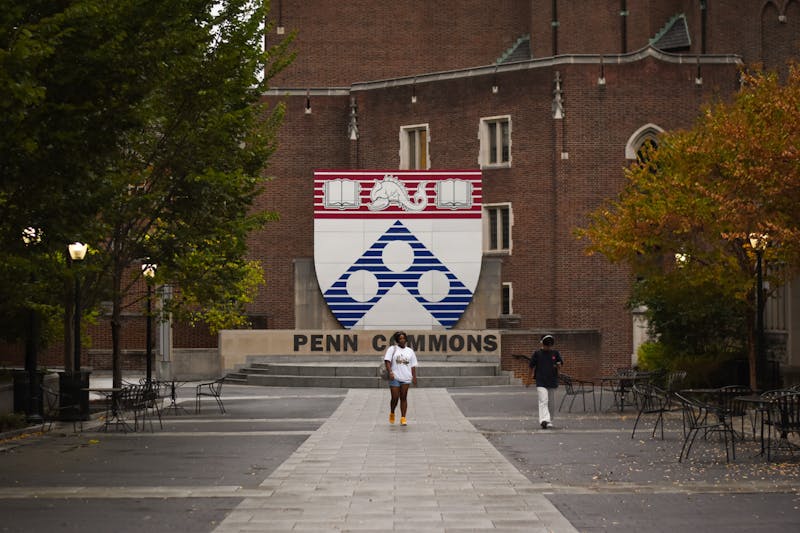
The Associated Press calls Pennsylvania's U.S. Senate race for Republican candidate Dave McCormick on Nov. 7.
Credit: Derek WongRepublican candidate Dave McCormick will win the highly contested race for Pennsylvania’s United States Senate seat, defeating incumbent Sen. Bob Casey, the Associated Press projects.
The AP called the race for McCormick on Thursday afternoon, who won with a margin of just under 30,000 votes. McCormick’s victory in the Keystone State marks a major win for the Republican Party and its projected multi-seat majority in the Senate.
McCormick has been a vocal critic of Penn and other institutions of higher education for alleged antisemitism, and lists one of his "key priorities" as making "federal funding for U.S. universities contingent on stamping out antisemitism." In May, McCormick visited Penn's Gaza Solidarity Encampment, and told The Daily Pennsylvanian that he would consider removing federal funding from Penn based on its response to antisemitism on campus.
"Making [funding] contingent, certainly, on a environment that’s explicitly antisemitic? It doesn't seem like too hard of a bar to establish," McCormick said at the time.
His election on Thursday signals the potential for more congressional action on Penn's handling of campus antisemitism, coming off the heels of a recent report released by the House Education and Workforce Committee on a similar investigation.
The roughly 30,000 vote margin — which is less than 0.5% — could possibly trigger an automatic recount.
"While votes continue to be counted, any way you slice it, Dave McCormick will be the next United States Senator from Pennsylvania," McCormick campaign spokesperson Elizabeth Gregory said in a statement Thursday morning, as results were still deemed too close to call.
"This race is within half a point and cannot be called while the votes of thousands of Pennsylvanians are still being counted,” Casey campaign spokesperson Maddy McDaniel wrote in a statement Thursday afternoon. "We will make sure every Pennsylvanian’s voice is heard."
McCormick's win comes amid a sweep of Pennsylvania's statewide offices for Republican candidates. York County District Attorney Dave Sunday was elected Pennsylvania's next attorney general, and incumbent Auditor General Tim DeFoor and incumbent Treasurer Stacy Garrity were both reelected to a second term.
After flipping Democratic-held seats in West Virginia, Montana, and Ohio, McCormick's victory will give Republicans a projected 53 seats in the U.S. Senate.
McCormick is a graduate of the United States Military Academy at West Point. After a period of military service during the Gulf War, he worked at McKinsey & Company and later joined a software startup. McCormick transitioned into public service during the George W. Bush administration. He then went on to become CEO of Bridgewater Associates, one of the world’s largest hedge funds.
Former President and 1968 Wharton graduate Donald Trump, who was projected to beat Vice President Kamala Harris early Wednesday morning in the 2024 presidential election, endorsed McCormick in April.
McCormick’s 2024 Senate race was shaped by the Commonwealth's economic challenges, including inflation and rising energy costs. Despite facing criticism from some corners of the GOP for his ties to Wall Street and his personal wealth, McCormick was able to tap into a message of fiscal conservatism and economic revitalization via lower taxes, limited government, and fewer regulations.
His candidacy sharply contrasted with that of Casey, who ran on a platform focused on health care, climate change, and economic justice. Widely considered a moderate Democrat, Casey focused his 2024 campaign on preserving Social Security and Medicare as well as expanding job opportunities in clean energy.
In an event co-hosted by Penn College Republicans near Penn's campus on Oct. 23, McCormick discussed climate change and energy policy. Throughout his campaign, McCormick criticized Casey’s alignment with national Democratic policies — particularly around energy regulations, which he argued harm Pennsylvania’s energy sector.
Casey, the incumbent who was seeking his fourth term in the U.S. Senate, made several appeals to young voters in the Philadelphia region throughout his campaign — including campaign stops targeted toward college students, which Penn students attended.
On Penn's campus, voters overwhelmingly cast ballots for Casey, who received just under 80% of votes at the ARCH building, Houston Hall, Civic House, and the Walnut Street West Library for the Senate race.
The Daily Pennsylvanian is an independent, student-run newspaper. Please consider making a donation to support the coverage that shapes the University. Your generosity ensures a future of strong journalism at Penn.
Donate








